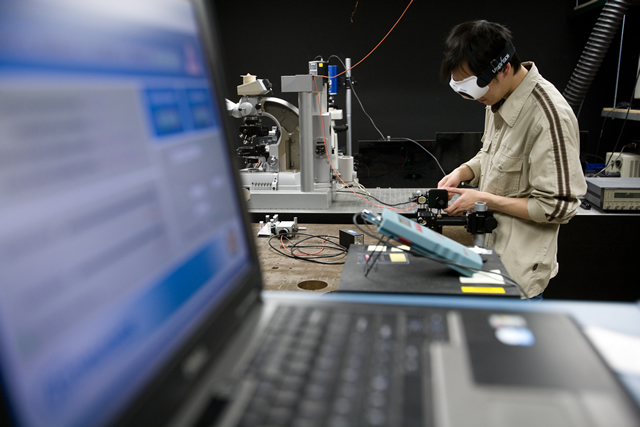
Computer Science ETDs
Publication Date
12-1-2011
Abstract
Next-generation exascale systems, those capable of performing a quintillion operations per second, are expected to be delivered in the next 8-10 years. These systems, which will be 1,000 times faster than current systems, will be of unprecedented scale. As these systems continue to grow in size, faults will become increasingly common, even over the course of small calculations. Therefore, issues such as fault tolerance and reliability will limit application scalability. Current techniques to ensure progress across faults like checkpoint/restart, the dominant fault tolerance mechanism for the last 25 years, are increasingly problematic at the scales of future systems due to their excessive overheads. In this work, we evaluate a number of techniques to decrease the overhead of checkpoint/restart and keep this method viable for future exascale systems. More specifically, this work evaluates state-machine replication to dramatically increase the checkpoint interval (the time between successive checkpoints) and hash-based, probabilistic incremental checkpointing using graphics processing units to decrease the checkpoint commit time (the time to save one checkpoint). Using a combination of empirical analysis, modeling, and simulation, we study the costs and benefits of these approaches on a wide range of parameters. These results, which cover of number of high-performance computing capability workloads, different failure distributions, hardware mean time to failures, and I/O bandwidths, show the potential benefits of these techniques for meeting the reliability demands of future exascale platforms.
Language
English
Keywords
Checkpoint/ Restart, Reliability, Exascale, State-Machine Replication
Document Type
Dissertation
Degree Name
Computer Science
Level of Degree
Doctoral
Department Name
Department of Computer Science
First Committee Member (Chair)
Arnold, Dorian
Second Committee Member
Taufer, Michela
Third Committee Member
Crandall, Jed
Project Sponsors
Sandia National Laboratories, Laboratory Directed Research & Development Program
Recommended Citation
Ferreira, Kurt. "Keeping checkpoint/restart viable for exascale systems." (2011). https://digitalrepository.unm.edu/cs_etds/17
